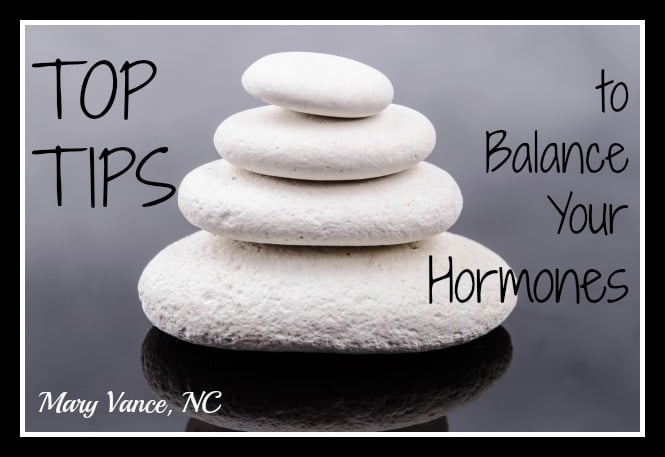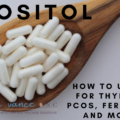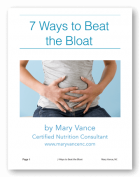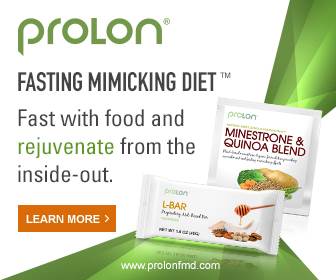I don’t think there’s a worse feeling than being at war with your hormones. I know– I’ve been there. Once upon a time I was struggling with hypothyroidism, low female hormone levels, and adrenal fatigue. That’s a triple whammy. I was tired, stressed out, anxious, depressed, and prone to crying fits. My hair fell out, I had killer PMS, and I was at the end of my rope. So believe me, I can empathize with the women I’m helping when it comes to hearing their stories. And better yet, after experiencing unbalanced hormones myself, I know first hand what it takes to get back on track and rebalance your hormones.
First off, a little background. Hormones are chemical messengers telling certain organs what to do. The endocrine system, which is a series of glands responsible for secreting your hormones, is an amazing but delicate system, especially in women. It’s fascinating, really. Your brain communicates with your thyroid, adrenals and ovaries to trigger ovulation and menstruation all the while regulating your metabolism, mood, energy levels, weight and sex drive.
Chronic stress can drive up your cortisol levels–contributing to weight gain, anxiety and insomnia–and drain your female hormone levels, especially progesterone. Low progesterone can cause menstrual irregularities, depression, breast tenderness, mood swings, insomnia, low sex drive, fatigue, and anxiety, to name a few. Your other main female hormone is estrogen, and when it’s too high in relation to progesterone, you are estrogen dominant, which contributes to endometriosis, PCOS, PMS, fibroids, and hormonal cancers.
Unabated chronic stress contributes to adrenal fatigue and can affect thyroid function, leaving you overweight, fatigued, depressed, struggling with PMS, infertility, hair loss and constipation. If this sounds like something that strikes in your 50s, I hate to tell you that I have many female clients in their mid-20s dealing with these symptoms.
How Do You Know If Your Hormones Are Off Kilter?
- Weight gain or inability to lose weight
- Increase in belly fat
- Hot flashes
- Hypoglycemia
- Fatigue
- Depression, anxiety, mood swings, irritability
- No sex drive
- Insomnia
- Night sweats
- Sugar cravings and/or cravings for wine & chocolate
- Breast tenderness
- A worsening in PMS
- Hair loss
- Hair growing in places you don’t want, like your face
- Bloating
My Tips for Hormone Balance
1. Sleep: there is a reason sleep gets the number one spot. It is the single most important and least expensive factor to encourage healthy hormone levels. Lack of sleep drives cortisol and blood sugar up, resulting in weight gain and cravings. Sleep is my #1 Rx for healing hormone imbalance. Click here for tips and more info on how sleep influences hormone levels.
2. Address your stress levels. High stress = high cortisol = low female hormone levels = PMS, irregular cycles underfunctioning thyroid, and weight gain. Read my article on overcoming adrenal fatigue, and my article on starting a morning ritual for balance and grounding. You can be popping all the best supplements and eating the perfect diet, but if you’re stressed and wired, you are not going to fully recover your health. Behind sleep, your lifestyle habits are critically important to healing. Take some time for self care and learn to support yourself during stress so your health stays intact.
3. Establish a regular routine. Your body thrives on regularity. Wake up and go to bed at the same time every day, eat in regular intervals to keep blood sugar levels stable, and your circadian rhythm will begin to normalize.
4. Diet matters: Just as certain foods (sugar, unhealthy fats, processed foods, coffee, alcohol) disrupt hormone balance, certain foods encourage hormone balance.
- Good fats are the precursors to hormones, so get plenty of coconut oil, butter or ghee, olive oil, and avocado. Gamma linolenic acid (known as GLA) is the active ingredient found in the oil of borage seeds. It really helps female hormonal balance by relieving PMS and menopausal symptoms. It’s also great for skin health. I use this brand.
- Cruciferous veggies (broccoli, cauliflower) help detox excess estrogen.
- Flaxseeds are phytoestrogenic and can help normalize estrogen levels, especially in women with low estrogen.
- Click here for my list of foods to boost underfunctioning thyroid
- Anti-inflammatory foods such as wild salmon, blueberries, leafy greens, chia seeds, and walnuts help balance our ratio of omega 3:6 fatty acids to regulate inflammation in the body.
- Herbs and spices such as ginger, turmeric, cinnamon, and cayenne can reduce inflammation and insulin levels and boost fat burning.
5. Essential oils can support hormone balance, thyroid function, and fertility. Clary sage, fennel, and sage encourage hormone balance. Lavender enhances relaxation. I use Young Living blends Dragon Time to regulate cycles and Endoflex for thyroid. BUT note that there is no scientific evidence that essential oils work to balance hormones. I use them in conjunction with other herbs or supplements, not instead of.
6. Avoid plastics: they contain dioxins, which are a source of endocrine disrupting xenoestrogens, a cause of estrogen dominance.
7. Kick the booze and coffee. Coffee jacks your stress hormones, exacerbates your fight or flight response, and contributes to anxiety. Many people are drinking it to combat exhaustion, which is a sign your adrenals are fatigued or your thyroid isn’t functioning optimally. Sugar and booze are 2 of the biggest endocrine disruptors, and they contribute to the stress you’re already enduring. Sugar causes inflammation and feeds bad bacteria in your gut (read: causes bloating, heartburn, constipation, diarrhea), and wine overloads your detox system, which needs to be kept in good working order to metabolize your hormones and contribute to overall hormone balance. Read my advice about coffee here. Here is how to find out if booze is negatively affecting your health.
8. Digestive wellness. Bloating, gas, indigestion, heartburn, constipation/diarrhea are all signs your digestive tract is not working properly. Whether it’s diet, dysbiosis, yeast overgrowth or SIBO, it’s likely causing inflammation that your body interprets as a stress (see above). If there’s inflammation in your digestive tract, you’re not breaking down or absorbing all the nutrients from your food, which contributes to deficiencies. Here’s a guide to troubleshooting digestive issues.
9. Detox. Toxins in your food, environment, body care products, and cosmetics are known endocrine disruptors. Reduce toxins in your life and support your liver, your hardest working organ. A good place to start is to dump all your cosmetics with laundry lists of chemical ingredients you cannot pronounce. Here are 10 ways to reduce your toxic load. If you wouldn’t eat it, don’t apply it to your skin. Your liver metabolizes hormones and detoxes excess estrogens. Give it some love by detoxing twice yearly. Your weight will normalize, too, and that helps combat estrogen dominance. Click here for foods that support liver health.
Herbs and Nutrients for Hormone Balance
- A B vitamin complex helps the body adapt to stress and may reduce PMS
- Minerals are super important for adrenal health, and magnesium in particular helps fluid retention, breast tenderness, anxiety, fatigue and bloating.
- GLA (mentioned above) reduces PMS
- DIM is excellent for estrogen detox
- Chasteberry (vitex) is key for balancing progesterone and helps regulate your cycles. This herb has helped me immensely.
- Wild yam boosts progesterone
- Adaptogenic herbs are excellent for adrenal hormone health.
- This supplement is a great all around female hormone tonic.
Resources
4 Easy tips to balance hormones right away
How I completely eliminated my PMS
Foods for thyroid health
Healing leaky gut
A guide to troubleshooting and fixing digestive issues
Adrenal health
Estrogen Dominance
Foods for liver health
My recommended 21 day detox program
How to cut the cramps
Solutions for hair loss
Hormones & Women’s Health podcast with Dr Dan Kalish
Thyroid podcast with Dr Justin
Please share and +1!

Mary Vance is a Certified Nutrition Consultant and author specializing in digestive health. She combines a science-based approach with natural therapies to rebalance the body. In addition to her 1:1 coaching, she offers courses to help you heal your gut and improve your health. Mary lives in San Francisco and Lake Tahoe in Northern California. Read more about her coaching practice here and her background here.








